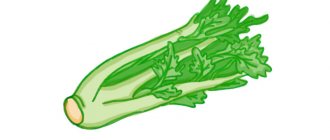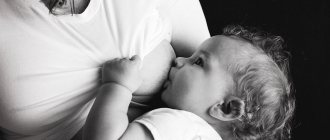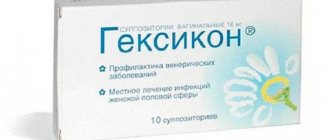Causes of high temperature
A nursing mother may experience an increase in body temperature due to various diseases.
A jump in temperature can be caused by both a viral disease and a disease of the mammary glands. Also, high temperature can be caused by intoxication of the body, the development of inflammatory processes and postpartum complications. In any case, the thermometer does not show high numbers just like that. Our body is designed in such a way that it reacts to any failure by producing antibodies. It is this process of fighting infection that causes the temperature to rise.
Today, modern medicine does not recommend taking antipyretic drugs if the thermometer does not exceed 38.5 degrees. Typically, this temperature is easily tolerated and does not require treatment. However, if the fever is strong, you need to take action and bring it down.
How to lower the temperature of a nursing mother so as not to harm the baby?
During pregnancy, women try to be especially careful about their health. After the baby is born, little changes. After all, from this moment on, the fair sex becomes a nursing mother. However, women are not always able to protect themselves from various diseases. How can you lower a nursing mother's temperature? Women face this question very often. It is worth noting that many drugs are prohibited during lactation. This is because the active ingredients of a particular medicine can pass into breast milk and harm the baby.
Symptoms of diseases
Every woman with a small child in her arms is prone to panic when the temperature rises. This is understandable, because every mother fears for the health of her baby and fears that the baby may become infected. However, panic is not your best friend in treating diseases. First of all, you need to find out the cause of the fever and take appropriate measures.
- Fever in combination with a runny nose and cough signals the development of acute respiratory viral infection.
- Heat in combination with lumps and pain in the mammary glands indicates the onset of lactostasis.
- Intense fever combined with breast pain and indentations when pressing on the breasts characterize mastitis.
- Nausea, vomiting and pain in the intestines combined with fever may indicate poisoning.
Read also:
Is it safe for women to take Nurofen while breastfeeding?
However, it must be remembered that determining the disease based on these symptoms is only a primary diagnosis. These are the things you should tell your doctor about for a correct diagnosis. Do not self-medicate, because incorrect therapy can provoke the development of serious complications.
Algorithm of actions at temperature
So, what tactics should a nursing woman follow if she has a fever?
Here are the step-by-step instructions:
- Find out the reason. Fever is a symptom. To recover, you need to look for the cause.
- Don't worry about feeding. At elevated temperatures, nothing happens to the milk; it is still beneficial for the baby, so fever is not a reason for weaning.
- Make sure the temperature is measured correctly. During breastfeeding, many processes occur in the breast, a whole milk production factory operates, which means more heat is released. Therefore, in the axillary area there may be 37.2 OC, and this is normal. It is better to measure the temperature under the armpit after feeding, after wiping it dry.
- Drink enough. If you have a fever, it means that your body will soon experience or already have a deficiency of fluid, which thickens the milk, thereby complicating its outflow. Add 2-3 glasses of water to your daily intake.
- If the thermometer shows above 38-38.5 OC and you feel unwell, take an antipyretic drug allowed during breastfeeding. Then you won’t have to adjust your feeding regimen.
Well, we found out that high temperature is not an indication for stopping breastfeeding, it is temporary and, fortunately, there are medications that are approved for lactation and help alleviate the condition. Only if the fever does not subside within 3 days, do not forget to consult a doctor.
How to bring down the temperature
Taking any medications while breastfeeding is highly undesirable. However, if you have a high fever and visiting a doctor is not possible, you can use some antipyretic medications, which will not harm the baby after a single dose.
Allowed antipyretics during breastfeeding:
Paracetamol. This drug can be used during lactation. It does not pass into breast milk well and does not have a harmful effect on the baby. However, if used uncontrolled, the drug can have a detrimental effect on the health of the mother’s liver. Has contraindications, including hypersensitivity to the drug. It should be taken only as prescribed by a doctor in the recommended dosage.
Ibufen. A modern drug with antipyretic, anti-inflammatory and analgesic effects. Today, experts recommend it for the treatment of children, pregnant and lactating women. Ibufen and its derivatives do not pass into breast milk and have no effect on the baby. However, the drug has contraindications, including: diseases of the stomach and intestines, diseases of the cardiovascular system, liver and kidney dysfunction, hemophilia, etc.
It is preferable for nursing mothers to use these drugs in the form of suppositories.
This will protect the baby from possible side effects.
Prohibited antipyretics during breastfeeding:
Acetylsalicylic acid. The well-known antipyretic drug Aspirin is strictly prohibited for use during pregnancy, lactation and in children under 15 years of age. Aspirin passes into breast milk and can cause internal bleeding in the baby. The drug is also contraindicated in case of renal and liver failure.
Antipyretic drugs
In the vast majority of cases, following the recommendations listed above will relieve a nursing mother from the need to take medications “for fever.” But if you have drunk two buckets of compote in the last couple of hours, if the room is cool and humid, and the thermometer has nevertheless crossed the 39 °C mark and is confidently creeping up, then yes, it’s time to resort to emergency measures.
In all the variety of different antipyretic drugs, you need to remember only two drugs that a nursing mother can afford to take without prior consultation with a doctor and without interrupting breastfeeding: these are ibuprofen and paracetamol. Forget about everything else!
Do not confuse the active substance with the trade name: the medicine can be called anything, in order to understand whether it is right for you or not, open the instructions or check with the pharmacist (the former is more preferable).
Acetylsalicylic acid (aspirin) is a cheap and effective antipyretic. However, this drug has much more serious side effects than the two substances mentioned above, so in Europe the use of aspirin for hyperthermia has long been prohibited.
Metamizole sodium (Analgin), nimesulide (the best known trade name is Nise) and other non-steroidal anti-inflammatory drugs, except the two mentioned above, are not drugs compatible with breastfeeding.
Ibuprofen
Ibuprofen is a non-steroidal anti-inflammatory substance that has a very important property for the topic of our conversation: it practically does not penetrate into breast milk.
During lactation, the maximum daily dose of the drug is 800 mg, a single dose is 400 mg. The course of treatment should not exceed three days, otherwise you need to consult a doctor.
A small dose of ibuprofen that passes into breast milk reaches its peak half an hour after administration and lasts for about an hour and a half. To minimize the risk of harm to your baby, you should feed your baby either immediately or at least two hours after taking the pill.
The most well-known drug containing ibuprofen has the trade name Nurofen. Depending on the manufacturer, one Nurofen tablet contains 200 or 400 mg of ibuprofen.
However, the list of drugs with this active ingredient consists of several dozen items. Let's name just a few of them:
- Advil;
- No pain;
- Bolifen;
- Bren;
- Brufen;
- Burana;
- Dolgit;
- Ibalgin;
- Ibupron;
- Ibuprof;
- Ibusan;
- Ibutad;
- Ibutop;
- Ibufen;
- Yprene;
- Markofen;
- MIG 200;
- Motrin;
- Perofen 200;
- Profen;
- Pro-Final;
- Reumafen;
- Solpaflex.
Photo gallery: the most famous ibuprofen preparations
Nurofen
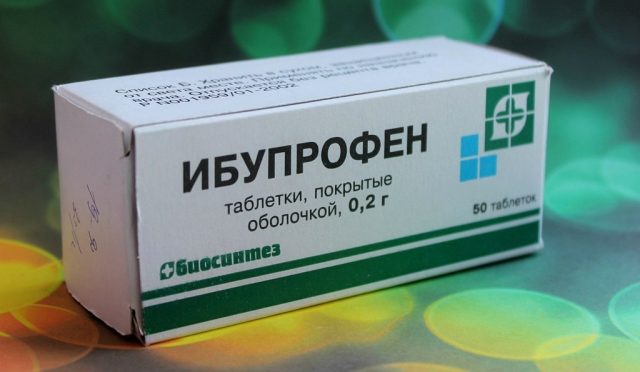
Ibuprofen
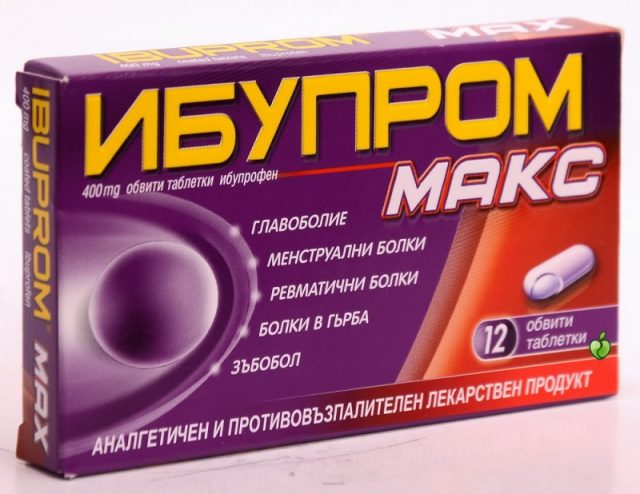
Ibuprom Max
Ibuprofen preparations are contraindicated for people who are allergic to its components, as well as those who have cardiovascular diseases, liver or kidney problems, intestinal inflammation, stomach or duodenal ulcers, gastritis.
Paracetamol
This drug is also considered compatible with breastfeeding, provided that the dosage is safe. The amount of active substance that passes into breast milk does not exceed 0.23% of the dose contained in the mother’s blood in the period from 40 minutes to three hours after administration (outside this period of time the amount of paracetamol is even less). Despite the fact that the drug has a fairly large list of contraindications (including everything that has been said regarding ibuprofen), it is often used even when treating children in the first year of life, so the risk of harm to the baby is still minimal.
Acceptable doses of paracetamol for women during breastfeeding are 500 ml once, 1,500 ml per day. The course of treatment is no longer than three days.
The most famous paracetamol drug is Panadol. Typically, one tablet contains just 500 ml of paracetamol, which makes the use of the drug very convenient.
Other trade names for drugs that are essentially paracetamol include:
- Adol;
- Amakol-Teva;
- Aldolor;
- Aminadol;
- Acetaminophen;
- Acetomai;
- Bindard;
- Volpan;
- Dynafed EX;
- Daleron;
- Dafalgan;
- Deminofen;
- Dolo;
- Dolomol;
- Ifimol;
- Calpol;
- Lecadol;
- Lupocet;
- Medipirin 500;
- Meksalen;
- Napa;
- Novo-Jessic;
- Opradol;
- Pamol;
- Paramol;
- Paracet;
- Pasemol;
- Pacimol;
- Perfalgan;
- Pyranol;
- Pyrimol;
- Passer;
- Sanidol;
- Syphenol;
- Tylenol;
- Febricet;
- Cefekon D;
- Efferalgan.
Photo gallery: the most famous paracetamol preparations
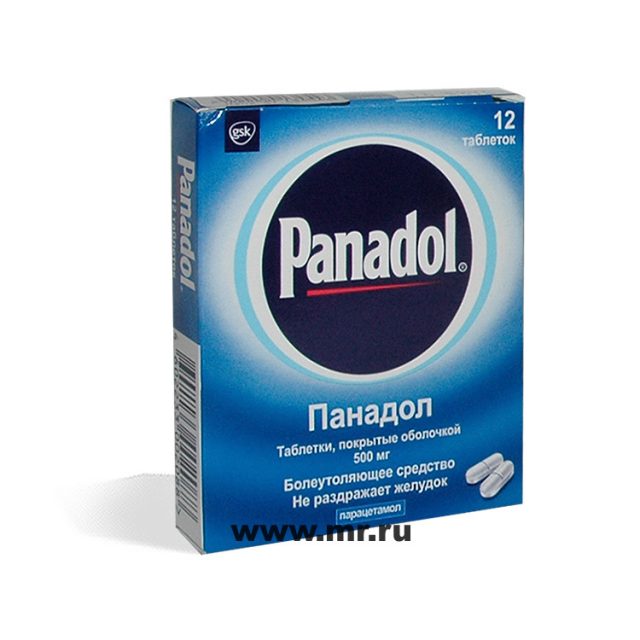
Panadol
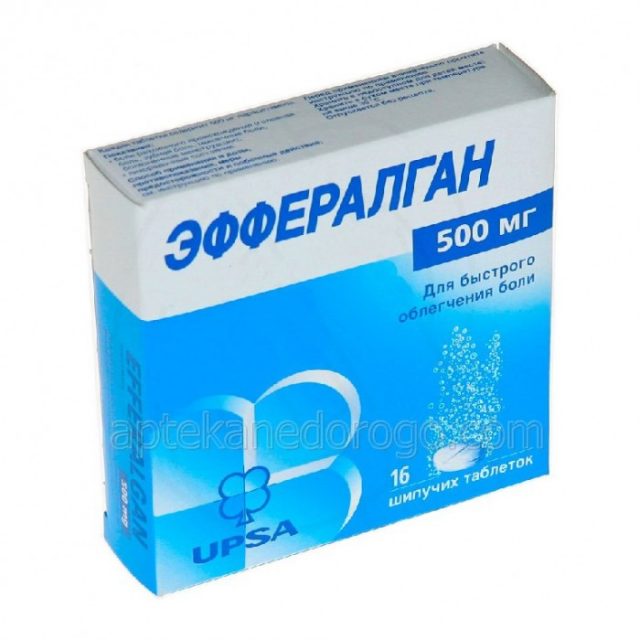
Efferalgan
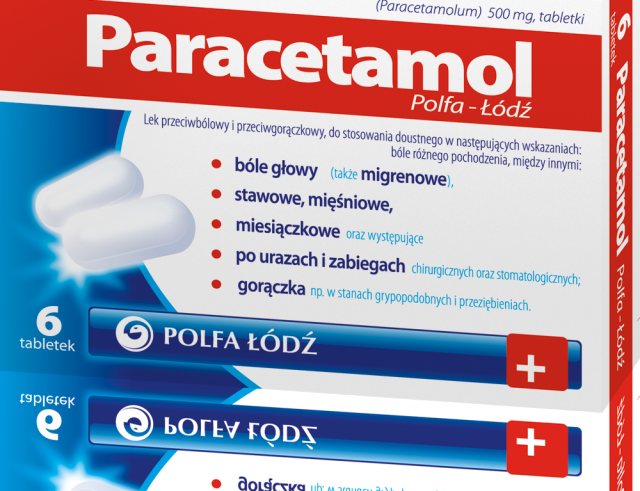
Paracetamol
Dosage forms
Antipyretic drugs are available in a wide variety of dosage forms. These can be tablets, capsules, syrups, injection solutions, powders, suspensions, suppositories and even ointments. Let's try to make a choice.
Pills
The most common form of taking antipyretics is, of course, tablets (capsules). When purchasing a medication, it is very important to know that the content of the active substance in drugs of different brands is not always the same, and an overdose can have a detrimental effect not only on the condition of the mother, but also on the baby. Therefore, it is impossible to do without arithmetic calculations, especially when the drug is purchased as self-medication!
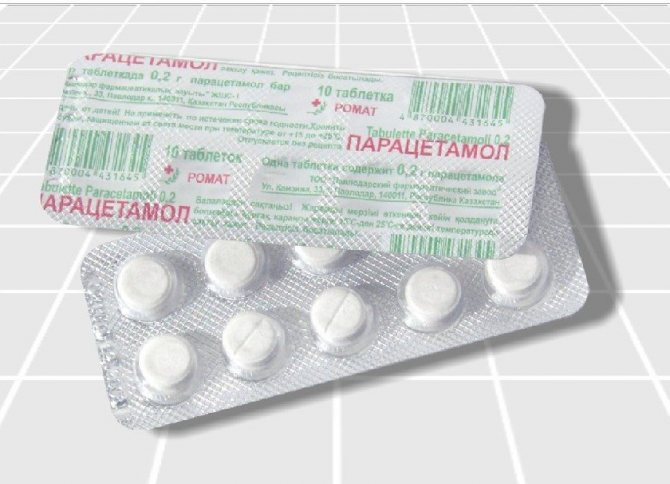
Tablets are the most common dosage form for antipyretics
It is also worth noting that antipyretics (usually paracetamol) very often form the basis of various powders “against flu and colds” (Theraflu, Coldrex, Fervex, Pharmacetron, etc.). A nursing mother should refrain from taking such drugs, since, in addition to the main active ingredient, they also contain other active ingredients, many of which are incompatible with breastfeeding and have other serious contraindications.
Injections
Among the various dosage forms in which paracetamol and ibuprofen are produced, there are also solutions for injections.
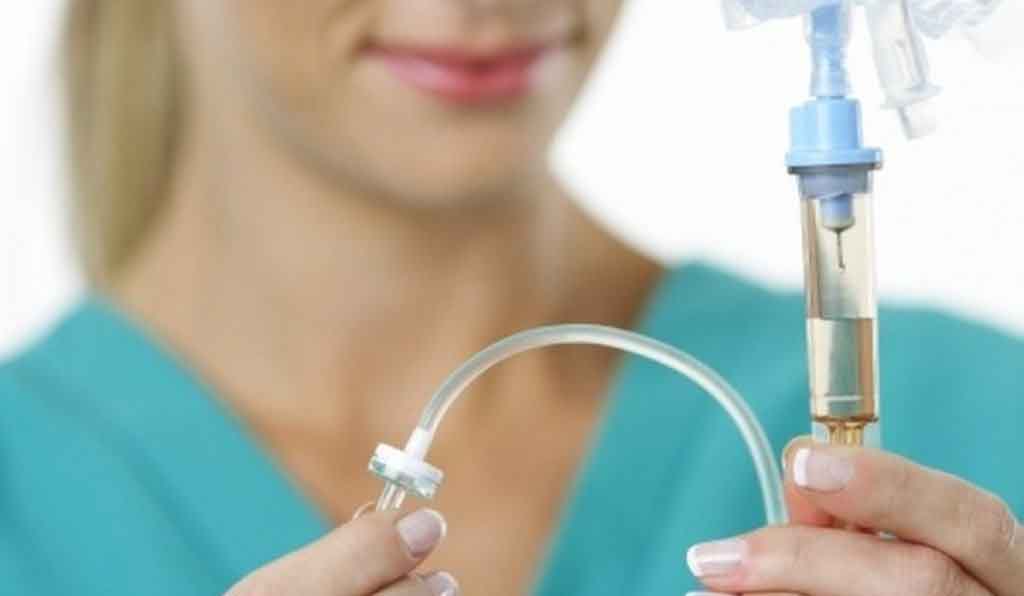
It’s better not to push yourself to the point where you need to get an IV.
Intravenous infusions of antipyretic drugs are used in cases where the patient’s condition is so severe that he is no longer able to swallow a pill or it is necessary to ensure the fastest possible effect of the medicine. If this happens, of course, there is no choice left, but it is still better for a woman during breastfeeding not to bring herself to such an extreme.
How to cope with a fever without drugs
The first rule for elevated body temperature is to drink plenty of warm drinks. You can drink warm milk with honey, raspberry tea, fruit compotes and juices if the child is not allergic to these products. You can also drink chamomile tea (if you are not constipated) or plain water. You need to drink often and a lot. Every 30 minutes you need to drink 200 ml of liquid.
Read also:
Self-administered and medication-assisted treatments for postpartum depression
In addition to drinking plenty of fluids, be mindful of how you dress. There is no need to wear warm sweaters, robes or double socks. If the room temperature is not lower than 18 degrees, you need to dress as lightly as possible so as not to provoke even more heating of the body.
At high temperatures it is prohibited:
- Drink hot tea
- Rub yourself with warming ointments
- Dress warmer than usual
- Cover yourself with warm blankets
In extreme heat, the temperature can be reduced with plain water. You need to wipe your body with warm water and wait until the moisture dries. Particular attention should be paid to areas where large arteries pass (groin, abdomen, head, legs, arms). After wiping, you need to lie down and cover yourself with a sheet. You can dress only after complete drying. The procedure can be repeated if necessary.
To combat respiratory viral infections, it is very important to ventilate the room and maintain temperature conditions. The temperature in the room should not exceed 18–19 degrees. Also make sure that the air in the room is sufficiently humid. At high temperatures, appetite often decreases. There is no need to force yourself to eat; eat light foods only when you feel hungry. Do not load your body with fried and fatty foods, eat more fruits and vegetables, and you can eat light soups and cereals.
What can be done for a nursing mother's fever - antipyretics?
Anything is possible during breastfeeding. Sometimes a new mother may feel unwell. And sometimes an unexpected illness can cause fever, body pain and discomfort, foreshadowing a viral disease. What to do in this case? How can you cure a cold or acute respiratory infection while breastfeeding without harming the baby? What can a nursing mother take for fever? What antipyretics are allowed for breastfeeding?
A logical question immediately arises: how can you lower the temperature of a nursing mother? And what antipyretic drugs are better to use - folk, pharmaceutical or none at all? Just calmly wait for the ailment to go away on its own?
As a rule, when breastfeeding, a woman carefully monitors her health, because any virus can be transmitted to the baby during feeding. Antipyretics during lactation should be taken with great caution. Therefore, this issue requires study.
For what reason does the temperature rise during hot water?
- Any acute respiratory infection or acute respiratory viral infection can provoke a fever, as the body begins to actively fight the cold. An increase in temperature means that the immune system is fighting off pathogens.
- A high temperature in a nursing mother may be an indicator of breast inflammation associated with stagnation of milk - lactostasis. The blocked milk duct becomes inflamed and causes fever.
- Internal inflammation of any organ, gynecological diseases, joint pain can also cause fever.
- Poisoning and disruption of the digestive system may be accompanied by fever.
Whatever the reason for fever during breastfeeding, it is recommended to consult a doctor immediately. The specialist will determine the main source of the fever and prescribe treatment that will be effective and safe for the infant.
What should a nursing mother do if she has a fever?
- First of all, you need to determine the cause of the fever in a nursing mother. If this is not associated with inflammation, but is only the result of a cold or viral infection, there is no need to immediately lower the temperature. It may be an indicator of the body's fight against infection.
- Drink more clean drinking water. Warm water helps remove pathogenic bacteria from the body.
- If, while breastfeeding, it is not possible to immediately contact a specialist, and the temperature has risen above 38.5, you can bring it down by rubbing it with vinegar and vodka: by 1 tbsp. l. vodka, add 1 tbsp. l. food bite and dilute the mixture with warm boiled water. Moisten a piece of clean bandage or cotton wool and wipe the armpits, elbows and knees, neck and feet.
- There are a number of pharmacological agents that can be used by a nursing mother as an antipyretic at high temperatures. It is only important to carefully study the instructions for the drug. It always indicates whether it can be used for breastfeeding.
- Herbal decoctions and teas can be an excellent alternative to antipyretic drugs during breastfeeding. It is only important to determine the cause of the temperature increase. The herbal mixture, properly brewed and taken according to a certain system, quite quickly relieves fever and pain.
- A cold compress on the forehead eases the condition of the nursing mother's body during fever and gradually reduces the fever.
The effect of treatment on the body of mother and child
There are many factors that influence the baby during breastfeeding. If, while breastfeeding, the mother of a newborn feels unwell and has a fever, before proceeding to treatment, you should check how much this remedy can harm the baby’s sensitive body.
- Toxicity of the drug. There are neutral antiseptic and antipyretic agents that cannot affect infants when used for a short time. Before using any drug, a nursing mother should carefully study the instructions.
- Quantity. When breastfeeding, the rate of medication intake is very important. Sometimes a one-time use of the drug is enough to reduce the temperature and affect the inflammatory process.
- Time. The daytime period, when the child is quite active, is more favorable for treating the mother while breastfeeding. At this time, the baby’s body is less susceptible to various kinds of external influences.
- Choice. Competent parents know that sometimes simple folk antipyretic methods are more effective than pharmacological agents. You can sometimes reduce your fever and get rid of the disease by following simple rules and following a certain system of procedures.
If the disease is so serious that antibiotics cannot be avoided, only then is it recommended to stop breastfeeding. In all other cases, with the support of a specialist, continue to breastfeed your baby and take all necessary actions to improve your well-being.
Approved drugs
Often, when the temperature rises, a nursing mother wonders what medications can be taken so as not to harm the baby, and how to bring down the temperature if it continues to rise, reaching 38 degrees.
- Paracetamol. This is a harmless antipyretic, which is recommended by experts for colds and viral infections to reduce fever, not only for adults, but also for children.
- Ibuprofen is an antiseptic that can be used during breastfeeding.
- Aspirin is a popular antipyretic and pain reliever approved for use by nursing mothers. However, this remedy should not be taken for long and with great caution, since acetylsalicylic acid can have a negative effect on the baby’s fragile body.
- Nurofen is another drug that doctors consider safe to take during breastfeeding.
- Effective drugs that relieve fever include suppositories, such as Cefekon, or its analogues.
Any antipyretic taken while breastfeeding should be chosen only after consultation with a specialist.
Contraindications
The following circumstances are contraindications to the use of antipyretics during lactation:
- If a child is prone to allergic reactions and is sensitive to most foods, it is necessary to refrain from taking any medications.
- Experts advise taking medications after breastfeeding.
- If you take medications regularly, between feedings the mother can express milk from the breast and pour it out. Before the next session, enough milk will be collected so that the baby has enough for one dose.
Taking medications during pregnancy and lactation: Dr. Komarovsky (video)
Traditional methods of getting rid of fever
What can help a nursing mother with fever? Warm drinks, vitaminization and cleansing of the body are considered very effective during epidemics of viral diseases. This is an excellent prevention against infections and colds during breastfeeding. In addition, they have analgesic, antipyretic and antiseptic effects.
- Tea with raspberries. If health problems of a nursing mother have caused an increase in temperature, you can drink a cup of raspberry tea. Fresh berries added to tea will not only provide pleasure, but will also alleviate the patient’s condition. Raspberries are a natural antipyretic, lowering body temperature and causing profuse sweating. In winter, natural raspberries can be replaced with jam or frozen berries. At the first symptoms of a nursing cold, you can take tea with raspberries, and this will be an excellent prevention of the development of the disease.
- A decoction of currant leaves, mint, linden blossom and rosehip berries perfectly relieves fever and will not cause any harm to the child. There is only one limitation: you need to drink this tea little by little, as it can enhance lactation. This herbal mixture is an excellent cure for fever, colds and flu while breastfeeding.
- Honey and lemon. The combination of these two products gives an antipyretic effect. Just squeeze a teaspoon of lemon juice and mix with a teaspoon of honey. Hold in mouth for one minute and then swallow. However, this method is only good if the baby is not allergic to honey.
Freeing a nursing mother's intestines from toxins is a sure way to help the body recover and start the healing process.
Prevention of colds and ARVI
A young nursing mother should take care of herself, because the health and peace of the baby depends on her. There are many ways to boost immunity and avoid fever during breastfeeding and prevent taking antipyretics:
- Don't get too cold. In the autumn-winter period, dress warmly. It’s better to play it safe and take gloves and a scarf with you than to suffer from a runny nose and headache later.
- Be outdoors more often. Walks with your child should be regular. This strengthens the baby and at the same time allows the young mother to regain strength.
- Ventilate the room at least three times a day.
- Avoid places with large crowds of people. Necessity will force you to visit a children's clinic or go to a store. But it is better to walk with a stroller in a park or square, where contact with people and transport is minimized.
- Choose foods for cooking carefully. Follow the storage rules, read the ingredients on the packaging, and pay attention to the production date.
- Take a contrast shower and keep the room clean.
Caring for an infant is a constant stress for a young mother.
Sleepless nights, worry about the baby's health, breastfeeding - all this requires a lot of effort, patience and time from the mother. Sometimes a nursing woman’s temperature can rise simply due to overwork and weakness of the body. Therefore, healthy sleep, bed rest during illness and a little time given to yourself will help you recover easily and quickly, even without the use of antipyretic drugs. How to reduce the temperature of a nursing mother? Which method should you choose? When breastfeeding, you should always start with the methods that are safest for your baby. Try to do without medications. Warm drinks, herbal decoctions, vinegar rubs and bed rest will help restore strength and relieve fever.
How would you rate this material?
EdaKarapuza.ru
Should I stop feeding?
Today, experts do not recommend stopping breastfeeding, even if the mother has a high temperature. If you catch a viral disease, then the child may have already become infected, and in this case, he can receive antibodies to this disease through his mother’s milk.
In the case when the temperature is caused by lactostasis or mastitis, breastfeeding will be the best medicine for the mother. For these diseases, doctors, on the contrary, recommend putting the baby to the breast as often as possible. After all, it is the baby who will be able to remove stagnation of milk and prevent the inflammatory process in the mammary glands.
Read also:
Short periods: causes, diagnosis, treatment
According to the recommendations of the World Health Organization, a child can be weaned only if the mother’s treatment poses a risk to the baby’s health. Thus, as long as you are not taking drugs that are dangerous to the baby, you can and should breastfeed.
With your milk, your baby will receive valuable antibodies that will form his immune system.
Fever and illness can affect anyone, but during breastfeeding these diseases cause great concern among mothers. At the first signs of illness, you should immediately consult a doctor and calm down. Take only medications that are safe for your child and do not exceed the recommended dosage. Remember that your child’s health depends on your condition. With proper treatment, the disease will subside in the shortest possible time.
What can you drink for fever while breastfeeding?
It is known that taking any medications both during pregnancy and during breastfeeding is extremely undesirable. However, sometimes situations arise when you simply cannot do without medication. What should a nursing woman do if she gets sick and has a fever?
Is it possible to feed a baby at elevated temperatures?
It is better to stop breastfeeding during the course of the disease, and resume lactation after recovery.
High fever during breastfeeding can be caused by many reasons. Whether it is possible to feed the baby if the mother has a fever depends on what exactly caused the fever. A woman's breast milk may contain a large number of viruses or bacteria, which will lead to the development of disease in the child. Also, specialists may prescribe medications that are incompatible with breastfeeding.
In such cases, you should stop breastfeeding your baby for the period of treatment, replacing milk with formula. To maintain lactation and continue breastfeeding after recovery, milk must be expressed regularly.
During this period, the amount of milk may decrease, which is caused by a weakening of the body and a decrease in hemoglobin levels. What to do in this situation? You should know that you should not worry about this, if you maintain lactation - express milk, its quantity will be restored after the nursing mother recovers.
Safe antipyretics during lactation
The safest antipyretics are drugs based on paracetamol and ibuprofen.
If a woman gets sick while breastfeeding and has a fever, you should ask specialists what can be done for a nursing mother’s fever so as not to harm the baby. The safest and most effective antipyretics are paracetamol and ibuprofen. Paracetamol is the active ingredient of the drugs - Paracetamol, Panadol, Tylenol. Ibuprofen is the active ingredient in antipyretics such as:
- Ibuprofen;
- Nurofen;
- Adfil;
- Brufen.
Ibuprofen not only reduces fever well, but also belongs to the group of painkillers and anti-inflammatory drugs. Even though these drugs are safe during pregnancy and breastfeeding, it is important to follow the dosage. Exceeding the permissible dose can cause serious consequences for the infant.
At high temperatures, women are usually prescribed 3-4 tablets per day, which should be taken at regular intervals. It is advisable to limit the course of use to 2–3 days.
Instead of tablets, it is safer to use suppositories based on paracetamol and ibuprofen. Drugs in this pharmacological form are less effective, but there is no doubt about their safety - the active substance will not pass into milk. Antipyretic drugs based on aspirin should be avoided; this active substance is dangerous to the health and life of the child.
It is important to know that a fever in a nursing mother can be caused by the development of inflammatory processes in the breast. This usually occurs as a result of stagnation of milk. Many women develop lactostasis or mastitis during lactation. In such cases, the best medicine is to put the baby to the breast.
How to prevent fever?
If a nursing woman’s body temperature has already increased, it is important to follow the recommendations of specialists. It is known that you can take antipyretic drugs when the temperature has already risen to 38.5 degrees. To prevent it from increasing, you can try the following:
- The room should have fresh air of moderate humidity. It is important to regularly ventilate the room so that the air in it does not stagnate. Such actions will speed up the mother’s recovery process and help avoid infecting the child if the woman has a cold or viral infection.
- You need to try to rest and sleep more, saving energy costs.
- Even if you have a chill, you should try not to bundle up.
- It is necessary to provide the body with a sufficient amount of drink, then the process of thermoregulation will be restored much faster.
If possible, during the course of the illness that caused the increase in body temperature, it is necessary to limit contact between the mother and the child. It is advisable that other relatives be with the baby, because there is a high probability that the child will also get sick from the mother.
Traditional methods for normalizing body temperature
To normalize body temperature, you need to provide the body with enough fluid
In folk medicine, several effective and safe methods are known to reduce body temperature in a nursing mother. Since ancient times, women have used a method such as vinegar rubs to treat fever. To carry out the procedure, you need to dilute vinegar in half with water, moisten a gauze cloth in the solution and walk through the places where the vessels are located as close as possible to the surface of the skin.
It is necessary to carefully treat such areas of the body as the neck, elbow bends, groin folds, and areas under the knees. You need to finish the procedure by wiping your entire body with a vinegar solution. Such manipulations need to be carried out 3 times in a row with an interval of 5–10 minutes. At the end of the procedure, put on a light robe or wrap yourself in a thin sheet and lie down for a while.
When asked what a nursing mother can drink at a fever, supporters of traditional medicine recommend using herbal tea as a drink. You can add honey and lemon to a warm drink. Raspberry tea will also be beneficial. To prepare it, pour boiling water over a couple of tablespoons of raspberry jam, when it cools down a little, drink the drink. Raspberries are a natural antipyretic and can replace paracetamol or ibuprofen.
Despite the benefits of drinking, you should not drink more than 5 glasses of liquid per day, as this will cause increased milk production. If you refuse to feed your baby during the course of the illness, but want to maintain lactation, you will have to express frequently if you drink plenty of fluids.
You also need to be careful with herbal teas, as some herbs can cause severe allergic reactions in a child. This applies to those women who do not refuse breastfeeding at elevated body temperatures.
As you can see, there are several ways to normalize temperature without the use of antipyretics. However, it is still important to seek help from a specialist in time.
mirokdetok.ru
What should a nursing mother do if she has a fever?
- First of all, you need to determine the cause of the fever in a nursing mother. If this is not associated with inflammation, but is only the result of a cold or viral infection, there is no need to immediately lower the temperature. It may be an indicator of the body's fight against infection.
- Drink more clean drinking water. Warm water helps remove pathogenic bacteria from the body.
- If, while breastfeeding, it is not possible to immediately contact a specialist, and the temperature has risen above 38.5, you can bring it down by rubbing it with vinegar and vodka: by 1 tbsp. l. vodka, add 1 tbsp. l. food bite and dilute the mixture with warm boiled water. Moisten a piece of clean bandage or cotton wool and wipe the armpits, elbows and knees, neck and feet.
- There are a number of pharmacological agents that can be used by a nursing mother as an antipyretic at high temperatures. It is only important to carefully study the instructions for the drug. It always indicates whether it can be used for breastfeeding.
- Herbal decoctions and teas can be an excellent alternative to antipyretic drugs during breastfeeding. It is only important to determine the cause of the temperature increase. The herbal mixture, properly brewed and taken according to a certain system, quite quickly relieves fever and pain.
- A cold compress on the forehead eases the condition of the nursing mother's body during fever and gradually reduces the fever.
Reasons for not breastfeeding
If the temperature rises, the nursing mother needs to find out the cause of the disorder. A low temperature may be viral in nature or be a result of stress. Some women experience increased body temperature during ovulation. In such cases, breastfeeding is possible.
However, more serious problems can be associated with temperature. For example, inflammatory processes that often occur in the first weeks after childbirth. In addition, in a woman’s body, exhausted by pregnancy and childbirth, long-standing chronic ailments can worsen.
- a disease of young mothers - provokes not only an increase in temperature, but also inflammatory processes in the mammary glands.
Only a doctor can determine in what situation it is possible to feed the baby and when it is necessary to refuse. Therefore, you need to contact a specialist immediately.
A woman needs to know that it is necessary to stop breastfeeding only at high temperatures. At readings above 39°C, the taste of milk may change, and not for the better. This may encourage the baby to wean off the breast. Therefore, if the fever could not be reduced in time, the best option would be to take a break.
In cases where the cause of fever is diseases of the kidneys, liver, heart or lungs, breast milk should not be given to the baby.
Taking antibiotics is a reason to stop breastfeeding. However, today there are antibacterial drugs developed specifically for infants and nursing women. Unfortunately, they cannot always cope with serious diseases, so the choice of antibiotics and the possibility of breastfeeding during treatment should be discussed with your doctor. Otherwise, there is a risk of harming the health of the mother or child.
Treatment methods
Timely reduction of fever will help prolong breastfeeding. However, you need to understand that not all remedies for fever can be taken by a young mother.
Thus, drugs based on ibuprofen or, as a rule, do not affect milk if you adhere to the dosage and dosage regimen. The drugs are used immediately after feeding. In this case, by the child’s next meal, the concentration of the drug in the milk will be minimal. This means it won’t harm the baby. It is best to use antipyretic suppositories rather than taking pills.
But medications that contain aspirin are strictly prohibited during breastfeeding. The list of what you can take will be indicated by your doctor.
In cases where the temperature is less than 38°C, a woman can do without antipyretics, giving the immune system the opportunity to overcome the disease on its own. This temperature will not affect the quality and taste of milk.
Drinking plenty of fluids will help reduce your fever and help you feed your baby safely. First of all, you need to drink warm tea. If your child is not allergic, you can add a few drops of lemon juice to it.
But even in this case, much depends on the reason for the fever. So, with kidney disease, a large amount of fluid can increase pain. You should not be overzealous with drinking in case of mastitis, since milk production may increase.
Of course, the decision whether to continue feeding during the treatment period or not is made by the mother. But we must remember that for a child, weaning is a huge stress and, possibly, harm for further development.
An increase in body temperature is the first sign of the body's protective reaction. This is how our body tries to cope, for example, with viruses and infection, or indicates that malfunctions have been detected in the functioning of some organs and systems. It is worth noting that changes in body temperature can depend on many factors that are not necessarily related to health status, for example:
- with age;
- time of day;
- environmental impact on the body;
- pregnancy;
- individual characteristics of the body and so on.
If an increase in temperature is considered as a symptom of inflammation (say, a cold), then certain groups of anti-inflammatory and antipyretic drugs are used for therapeutic purposes. Unfortunately, most known drugs are not applicable during lactation.
Chemicals that enter the bloodstream will also pass into the mother's milk, which means into the baby's body. This can cause serious damage to the baby: from an allergic reaction to toxic poisoning, or even much worse. Then the question arises, what can a nursing mother do to lower her temperature when she has a cold?





